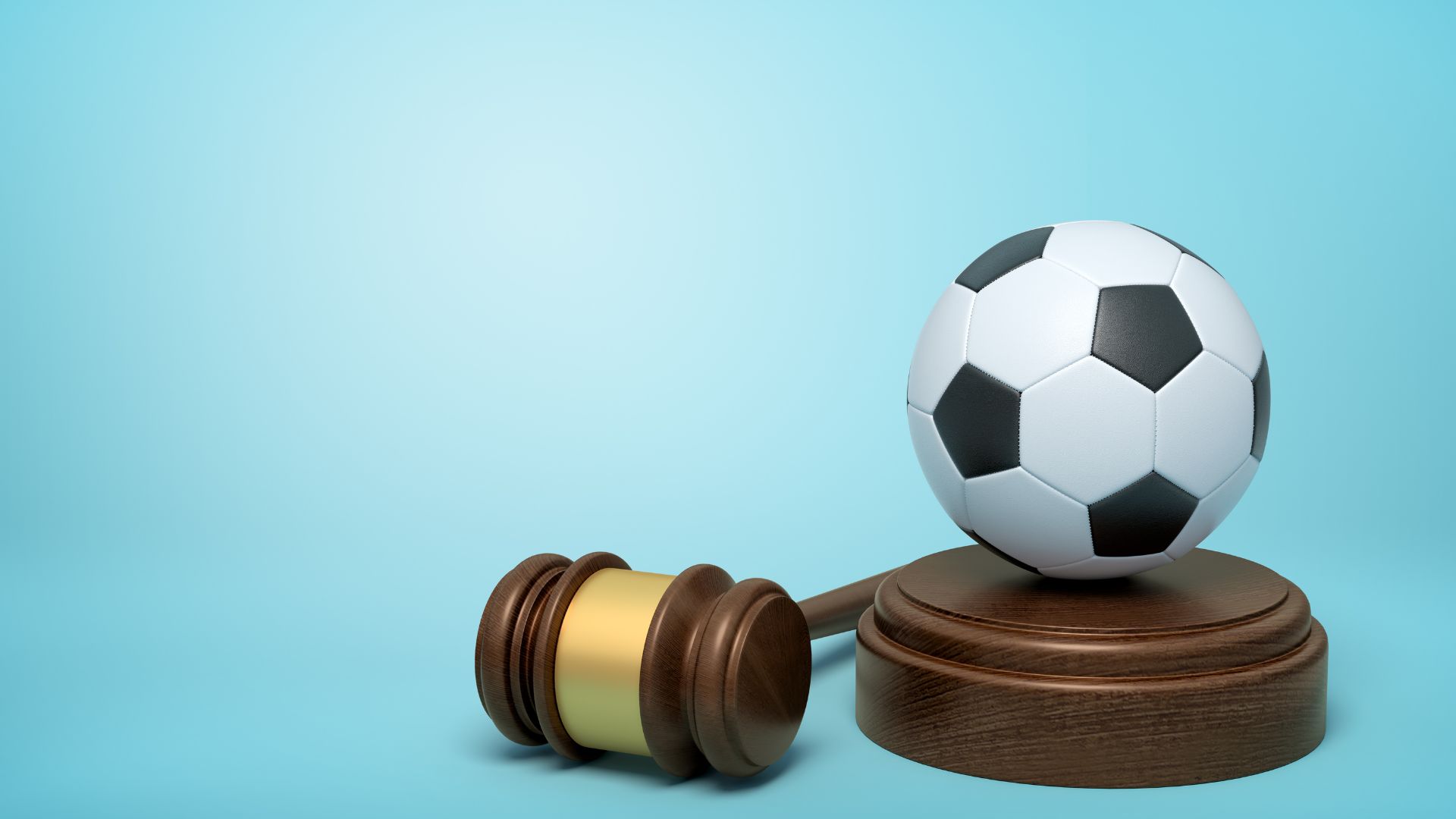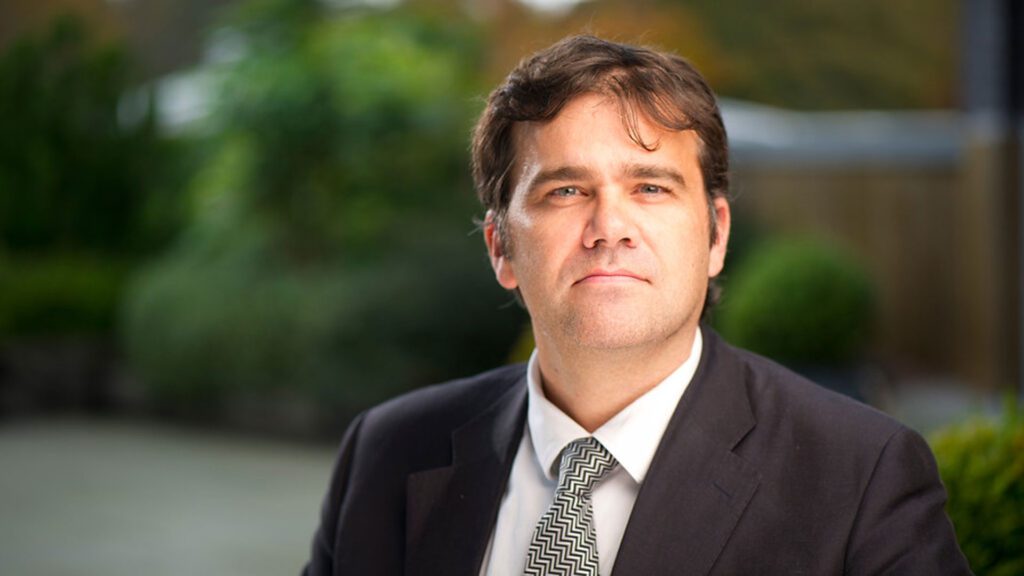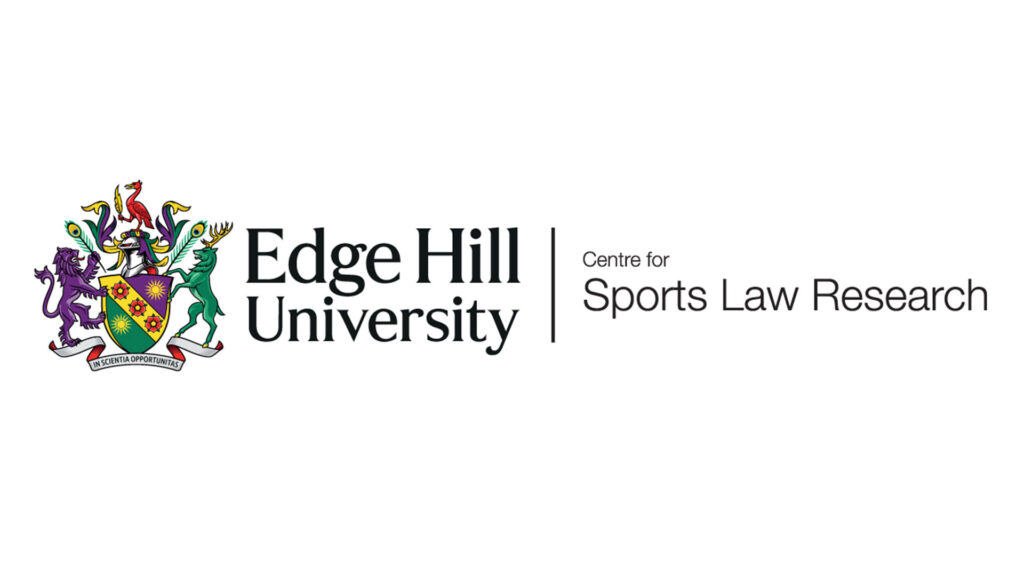

Richard Parrish is a Professor of Sports Law and Director of our Centre for Sports Law Research, housed within the School of Law and Criminal Justice at Edge Hill University. Between 2016-19 he was awarded Jean Monnet Chair of EU Sports Law and Policy by the European Commission.
Professor Parrish has held senior advisory positions for the EU institutions, House of Lords and national governments and he has authored some of the most influential sports law and policy studies commissioned by the EU. In the 2021 Research Excellence Framework (REF), his work on developing an EU sport diplomacy strategy was judged in the highest category (giving rise to ‘outstanding reach and significance’).
We caught up with Professor Parrish for an insight into sports law.
What initially sparked your interest in sports law?
I have been researching sports law for many years. My interest in the area stemmed from what I observed to be an increasing willingness of courts to intervene in sports disputes. In response, sports governing bodies sought to keep sport out of the courtroom by professionalising their own internal dispute resolution procedures. The term ‘sports law’ became a short-hand description of these two parallel worlds. One of the main debates is whether sport can be entrusted to resolve its own disputes, or whether sports participants are entitled to their ‘day in court’.
The evolution and recognition of sports law
When I first became interested in sports law, it was common for people to deny its existence and, with it, the existence of sports lawyers. That view was based on the observation that ‘sports law’ was in fact the application of traditional areas of law (such as contract, tort and criminal) to cases that just so happened to involve sport. The same has been said about employment law – isn’t that just how contract law operates in the workplace?
That view has changed. Now, no-one denies the existence of employment law as a discrete area of law, and most now agree that sports law should be treated the same. Whilst it is true that a good sports lawyer must first and foremost be a good lawyer well versed in the traditional branches of law, a sports lawyer has specialist knowledge of the industry. They know that the sport operates differently to ‘normal’ industries and social settings. For example, why is punching an opponent on the sports field treated differently to a punch thrown in a nightclub? Why do footballers command a transfer fee when moving clubs whilst no other industry operates such a practice? Why are athletes prevented from taking some medicines that are freely available to other members of the public?
What makes a good sports lawyer?
A good sports lawyer understands why sport is different and they have specialist knowledge of not only the law, but the internal regulations and dispute resolution procedures of sports bodies. The claim that sports law does not exist looks highly questionable given that dozens of law firms offer specialist sports law services and many barristers, including leading King’s Counsels (KC’s), specialise in sports cases.
Sports lawyers don’t just advise and represent clients before courts and arbitration panels, they also help governments, parliaments and other public bodies understand how the sports industry works so that state regulation reflects the nuances of the sector.
Influencing sports law and policy
I have worked with the House of Lords, the European Commission, the European Parliament and a number of European governments on sports law and sports policy matters. A good example is my work for the European Union. In 2009 the EU Treaty was amended, and sport was, for the first time, included as a new policy area. Since then, I have been asked by the EU to advise on how it should use its new powers. Many of the recommendations I made in various expert groups and as author of EU studies have been implemented by the EU.
I am proud that Edge Hill has been instrumental in shaping EU policy on sport, from the grassroots to the elite professional level.
Discover sports law at Edge Hill University
Edge Hill is known across the UK and Europe for its sports law expertise. Of paramount importance to us is that our students benefit from this so that we produce the next generation of outstanding sports lawyers and sports administrators. I lead two sports law modules on our LLB (Hons) Law degree. Both draw heavily on my research and practical experiences and that of other members of our Centre for Sports Law Research.
Our sports law modules are delivered so that students gain a real-world insight into the industry and the modules are supported by a range of activities designed to introduce our sports law students to the national and international sports law community. These include hosting guest speakers from industry, hosting international sports law panels, entering our students into sports law mooting and arbitration competitions, and giving our students funded access to major sports law conferences and events.
July 17, 2024



